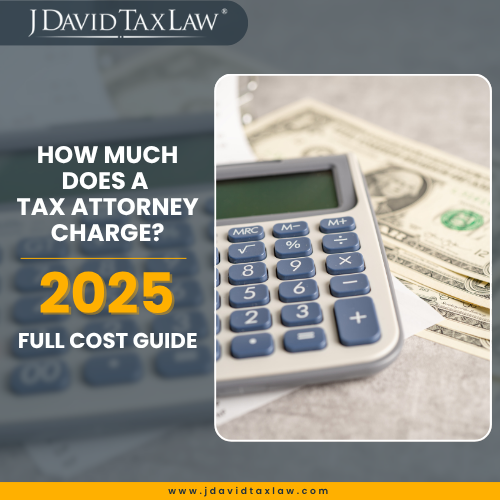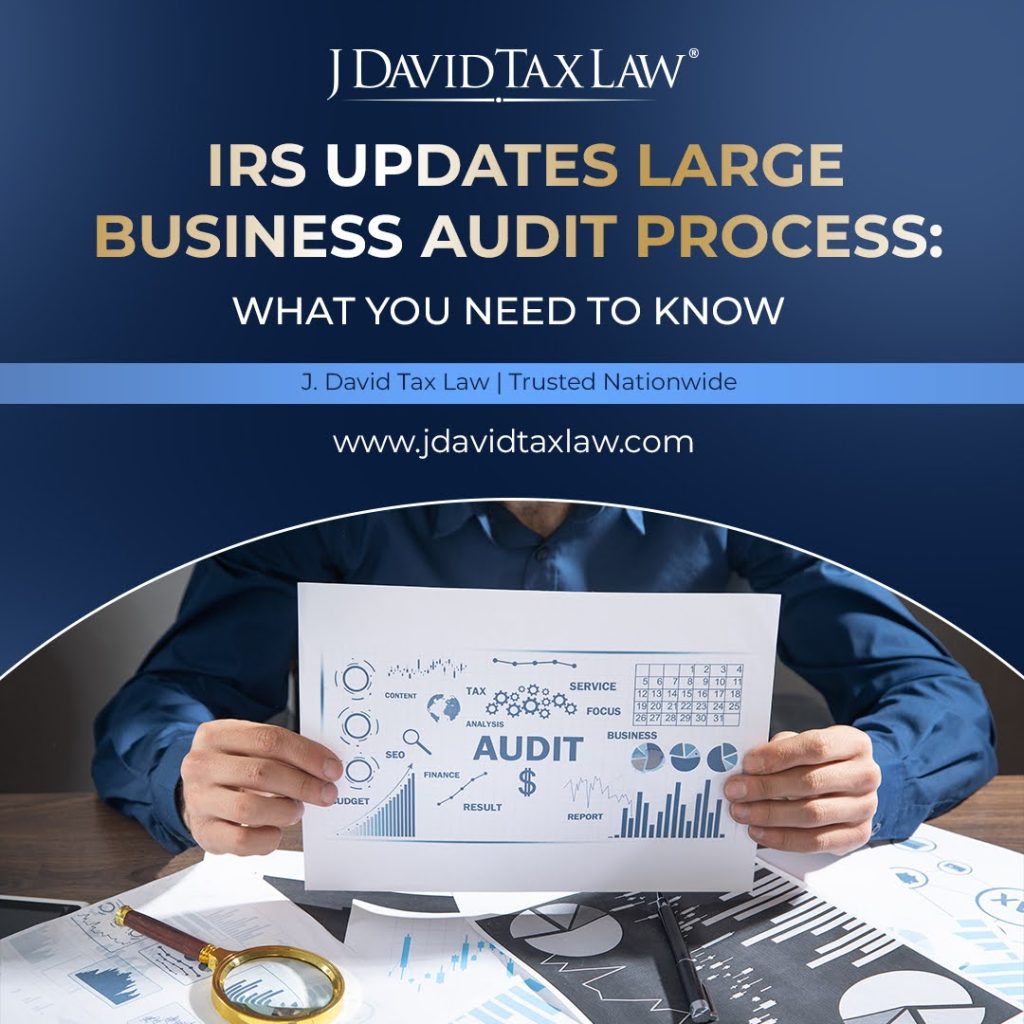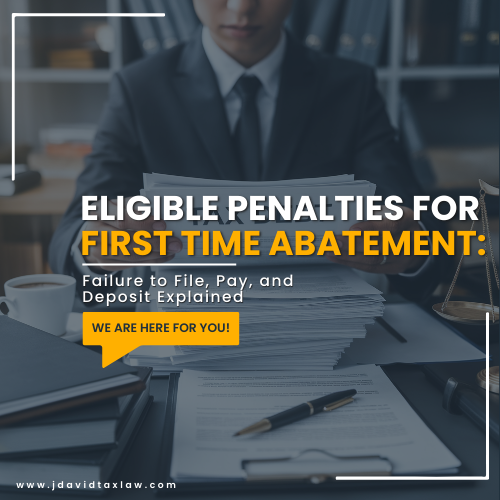When you’re facing IRS pressure, mounting penalties, or threats of wage garnishment, one question can feel just as stressful as the tax bill itself: How much does a tax attorney cost? You want expert help, but you also need to know it’s affordable—and worth it.
Here’s the short answer: Most tax attorneys charge between $200 and $500 per hour, or offer flat fees ranging from $2,000 to $10,000+, depending on the complexity of your case, the services required, and your location.
But that’s just the start. In this guide, we’ll break down how tax lawyers charge, typical fee ranges for specific tax problems, and why—despite the cost—hiring a tax attorney may save you thousands in the long run.
The IRS is Forgiving Millions Each Day. You Could Be Next.
Understanding The Types of Fees and Tax Attorney Rates
Every case is different. But most tax attorneys use one (or a mix) of these billing structures:
Hourly Rates
This is the most common model. Tax attorneys charge $200 to $500 per hour on average.
Mid-market cities: Rates may stay closer to $250/hour.
Major metros (New York, Los Angeles): Often charge $500–$800/hour or more.
Top-tier experts or niche litigation attorneys: Rates can exceed $1,000/hour.
You’re billed only for the time spent, but hourly fees can add up if your case becomes complex.
Flat Fees
For more predictable cases like filing an Offer in Compromise or representing a simple audit many attorneys offer flat fees:
Basic representation: $2,000–$4,000
Complex resolutions: $5,000–$10,000+
The benefit? Cost certainty. No surprise bills, even if the work takes longer than expected.
Retainers
Attorneys may require a retainer—an upfront deposit of $2,000 to $10,000+ that they bill against as work is completed.
Contingency Fees (Rare)
Unlike personal injury law, contingency billing is rare in tax law. In some refund cases, an attorney may work for a percentage of the recovered amount (often 20%–40%). But this is an exception, not the rule.
How Much Do Tax Attorneys Charge by Service?
Over 11 million Americans currently owe back taxes to the IRS, carrying a combined burden of more than $125 billion. That’s a staggering number—and many of those taxpayers turn to professional help when collections begin. But the cost of hiring a tax attorney isn’t one-size-fits-all. It often comes down to what kind of help you need. From stopping a wage garnishment to negotiating a complex settlement, each service comes with its own price range. Here’s a breakdown of what tax attorneys typically charge for the most common IRS issues, so you can prepare financially and make an informed decision before hiring.
Here’s what you can expect to pay for specific tax issues:
Service | Typical Fee Range |
IRS Installment Agreements | $2,000 – $10,000+ |
Offer in Compromise (OIC) | $3,000 – $10,000+ |
IRS Audit Defense | $2,000 – $10,000+ |
IRS Appeals | $3,500 – $10,000+ |
Penalty Abatement | $500 – $2,000+ |
Tax Court Litigation | $10,000 and up |
Wage Garnishment / Levy Release | $1,500 – $10,000+ |
Business Tax Resolution | $5,000 – $10,000+ |
These are averages. Your exact cost depends on the complexity, how many years are involved, and how aggressive the IRS has become.
What Affects the Cost of a Tax Attorney?
When you’re facing tax problems, legal fees can feel like just another source of stress. But understanding what drives those costs can help you budget smarter and avoid surprises. Here are the biggest factors that determine how much you’ll pay to hire a tax attorney:
1. Complexity of Your Case
Not all tax issues are created equal. A basic installment agreement for a $10,000 IRS debt is vastly different from fighting a multi-year audit involving a six-figure balance and business filings.
Simple cases, like requesting a first-time penalty abatement or negotiating a straightforward payment plan, may cost as little as $1,500 to $2,000. But as complexity increases, so do the hours, strategy, and legal preparation required.
You can expect significantly higher fees if your case involves:
Multiple years of unfiled returns
Over $100,000 in tax debt
Business tax audits, payroll tax disputes, or sales tax liabilities
Allegations of tax fraud or intent to evade
Appeals or litigation before the IRS Office of Appeals or U.S. Tax Court
These scenarios require detailed financial reviews, negotiation, documentation, and possibly formal hearings, driving both time and cost. At J. David Tax Law, we start with a free consultation to assess your situation and give you clarity on what level of representation is needed.
2. Attorney Experience
As with most legal services, you get what you pay for. A tax attorney fresh out of law school might charge $200/hour. In contrast, a seasoned attorney, especially one with experience at the IRS, U.S. Department of Justice, or years in federal tax litigation, may charge $500–$800/hour or more.
While higher hourly rates can feel intimidating, experienced attorneys often work faster and more efficiently, avoiding costly mistakes and securing better outcomes.
In many cases, hiring someone who’s “been here before” is the difference between a failed IRS settlement and a successful resolution that saves you thousands.
3. Your Location
Where you live, or more importantly, where your attorney practices, also influences cost.
California & New York: Expect to pay $400–$800/hour in major cities like Los Angeles or Manhattan, where demand and cost of living are high.
Florida & Texas: In cities like Jacksonville, Dallas, or Houston, tax lawyer rates are typically more affordable—ranging from $200–$500/hour.
Smaller cities or rural areas: You may find lower rates, but options for specialized tax counsel can be limited.
You don’t need to hire someone in your zip code. Tax law is federal, which means you can work with any licensed attorney, no matter where you’re located.
At J. David Tax Law, our attorneys serve clients across the country, including:
We combine nationwide reach with local experience, ensuring that no matter your location, you receive personalized, location-aware legal help with no inflated metro pricing.
4. Scope of Work
Not every client needs full-scale representation. Some only need help with a single issue, others need a full legal team to handle an aggressive audit, multiple filings, and appeals.
Here’s how scope impacts cost:
One-time legal guidance: A one-hour strategy session or document review may cost a few hundred dollars.
Mid-tier engagements: Services like filing an Offer in Compromise or representing a simple audit may range from $2,500–$10,000+.
Comprehensive representation: Ongoing negotiation with the IRS, tax court preparation, or multi-year cases can run well over $10,000 depending on complexity.
How to Find an Affordable Tax Attorney (Near You)
If you’re already behind on taxes, hiring a lawyer might feel financially out of reach. But affordable, qualified tax attorneys do exist, you just need to know what to look for, and where.
1. Know What “Affordable” Really Means
Affordability isn’t just about the lowest price—it’s about value for your specific case. A $5,000 flat fee might sound steep, but if that attorney eliminates $40,000 in IRS debt, you’ve made a smart investment. On the other hand, paying a low hourly rate to an inexperienced representative who drags your case out and fails to secure relief? That can cost far more in the long run.
2. Ask the Right Questions Up Front
Before hiring any tax attorney, ask:
Do you charge flat fees, hourly rates, or a retainer?
What services are included in your quote?
Do you offer payment plans?
Will I work directly with a licensed attorney, or a case manager?
Have you handled cases like mine before—with the IRS or my state tax agency?
3. You Don’t Need to Stay Local
Because tax law is federal, you’re not limited to attorneys in your city. In fact, some of the best (and most fairly priced) tax lawyers might not be local at all.
4. Take Advantage of Free Consultations
Most reputable tax attorneys offer an initial consultation at no cost. That’s your chance to:
Get a quote
Ask questions
Understand your options
Even if you don’t hire that attorney, you’ll leave with insight into what your case requires—and what you should expect to pay. Call (888) 342-9436 to book your free consultation.
Alternatives to Hiring a Tax Attorney
Hiring a tax attorney is often the best way to handle serious tax problems—but it’s not the only option. Depending on your situation, you may be considering other forms of help. Here’s a breakdown of common alternatives, along with the pros, cons, and risks of each:
1. Certified Public Accountants (CPAs)
You’re facing a standard IRS audit
You need help filing back returns
Your case doesn’t involve legal threats or complex negotiations
2. Enrolled Agents (EAs)
You’re dealing with simple disputes or notices
You need someone to handle IRS correspondence or help file resolutions like an Installment Agreement
While EAs can be more affordable than attorneys, they’re not lawyers. If your case involves legal risk, criminal investigation, or high-dollar negotiation, an EA may not have the authority or tools to protect you fully.
3. National Tax Relief Companies
High-pressure sales tactics
Vague service agreements
Huge upfront fees without transparency
Little or no direct access to an actual attorney
4. DIY Tax Resolution
Some taxpayers try to handle their own IRS issues by calling the IRS, submitting forms like an Offer in Compromise or Installment Agreement, or disputing penalties directly.
You owe less than $10,000
Your income and assets are easy to document
You’re not facing levies, garnishments, or legal threats
You’re comfortable managing government paperwork and deadlines
When You Should Hire A Tax Attorney?
If your case involves:
IRS collections, liens, levies, or garnishments
An audit or Tax Court case
$25,000+ in tax debt
Allegations of tax fraud or evasion
State tax enforcement (e.g., FTB, DOR, CDTFA, etc.)
Business payroll or sales tax problems
you need someone who understands the law, can protect your rights, and has the authority to negotiate directly with both federal and state tax agencies.
Conclusion
Tax problems don’t just affect your bank account,they weigh on your peace of mind, your livelihood, and sometimes your future. Whether you’re facing an audit, back taxes, wage garnishment, or unfiled returns, the last thing you need is more uncertainty, especially about legal fees.
Now you know what tax attorneys charge, what those costs depend on, and what your options are. The real question is: what’s it worth to protect yourself, your assets, and your future from the IRS or your state’s tax agency?
At J. David Tax Law, we don’t believe in cookie-cutter pricing or fear-based sales tactics. We believe in honest answers, expert representation, and long-term results. From California to Florida, New York to Texas, and every state in between, our licensed attorneys help clients just like you resolve serious tax issues with clarity and confidence.
Have questions? We’ve answered the most common ones below.
Frequently Asked Questions:
Penalty abatement services typically cost between $500 and $2,000. Pricing depends on case complexity and whether the attorney charges a flat rate or a percentage of penalties removed.
Tax attorneys usually charge $1,000 to $3,000 for EITC audit representation. Costs vary based on documentation needs and the number of tax years under review.
Expect to pay $2,000 to $8,000+ for IRS audit defense. Complex or multi-year audits can exceed this range, especially for business cases.
Offer in Compromise (OIC) services typically cost $3,000 to $10,000+. The fee reflects the detailed financial analysis and negotiation involved with the IRS.
Tax attorneys usually charge $1,000 to $10,000+ to negotiate and set up an IRS installment agreement. Fees rise if your case includes unfiled returns or large balances.
Partial Payment Installment Agreements cost around $2,500 to $10,000+. These require extensive documentation and IRS negotiation, which adds to the complexity and price.
On average, penalty abatement costs range from $500 to $2,000. Some attorneys charge a fixed fee, while others base pricing on the amount of penalty relief obtained.
Tax Court cases are the most expensive, often starting at $10,000+. Pricing depends on the case’s complexity, length, and required legal preparation.




















